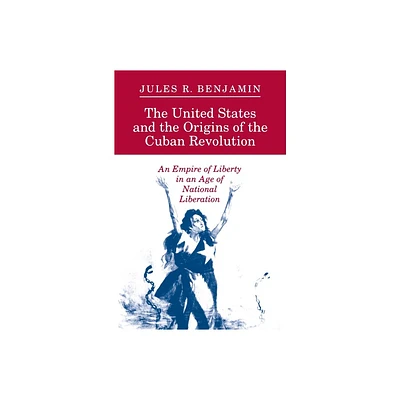Home
Sustaining Empire: Venezuela's Trade with the United States during Age of Revolutions, 1797-1828
Loading Inventory...
Barnes and Noble
Sustaining Empire: Venezuela's Trade with the United States during Age of Revolutions, 1797-1828
Current price: $64.95


Barnes and Noble
Sustaining Empire: Venezuela's Trade with the United States during Age of Revolutions, 1797-1828
Current price: $64.95
Loading Inventory...
Size: Hardcover
*Product Information may vary - to confirm product availability, pricing, and additional information please contact Barnes and Noble
Why did trade with the United States prolong Spanish colonial rule during the Venezuelan independence struggles?
From 1790 to 1815, much of the Atlantic World was roiled by European imperial wars. While the citizens of the United States profited from the waste of blood and treasure, Spanish American colonists struggled to preserve their prosperity on an imperial periphery. Along the Caribbean coast of South America, colonial elites and officials fought to secure Venezuela from threats of foreign invasion, slave rebellion, and revolution. For these elites, trading with the United States and other neutral nations was not a way to subvert colonial rule but to safeguard the prosperity and happiness of loyal subjects of the Spanish Crown. Food insecurity, deprivation, and political uncertainty left Venezuela vulnerable to revolution, however.
In
Sustaining Empire
, Edward P. Pompeian lets readers see liberal free trade just as colonial Venezuelans did. From the vantage point of the slave-holding elite to which revolutionary figures like Simón Bolívar belonged, neutral commerce was a valuable and effectual way to conserve the colonial status quo. But after Spain's crisis of sovereignty in 1808, it proved an impediment to Venezuelan independence. Analyzing the diplomatic and economic linkages between the new US republic and revolutionary Latin American governments, Pompeian reminds us that the United States did not, and does not, exist in a vacuum, and that the historic relationships between nations mattered then and matters now.
Examining an overlooked region, Pompeian offers a novel interpretation of early United States relations with Latin America, showing how US merchants executed government contracts and established flour, tobacco, and slave trading monopolies that facilitated the maintenance of colonial rule and the Spanish Empire. Trading with the United States, Pompeian argues, kept both colony and empire under a tenuous hold despite revolutionary circumstances. A fascinating revisionist history,
challenges long-standing assertions that this commerce served primarily as a vector for the one-way transmission of revolutionary, liberal ideas from the North to South Atlantic.
From 1790 to 1815, much of the Atlantic World was roiled by European imperial wars. While the citizens of the United States profited from the waste of blood and treasure, Spanish American colonists struggled to preserve their prosperity on an imperial periphery. Along the Caribbean coast of South America, colonial elites and officials fought to secure Venezuela from threats of foreign invasion, slave rebellion, and revolution. For these elites, trading with the United States and other neutral nations was not a way to subvert colonial rule but to safeguard the prosperity and happiness of loyal subjects of the Spanish Crown. Food insecurity, deprivation, and political uncertainty left Venezuela vulnerable to revolution, however.
In
Sustaining Empire
, Edward P. Pompeian lets readers see liberal free trade just as colonial Venezuelans did. From the vantage point of the slave-holding elite to which revolutionary figures like Simón Bolívar belonged, neutral commerce was a valuable and effectual way to conserve the colonial status quo. But after Spain's crisis of sovereignty in 1808, it proved an impediment to Venezuelan independence. Analyzing the diplomatic and economic linkages between the new US republic and revolutionary Latin American governments, Pompeian reminds us that the United States did not, and does not, exist in a vacuum, and that the historic relationships between nations mattered then and matters now.
Examining an overlooked region, Pompeian offers a novel interpretation of early United States relations with Latin America, showing how US merchants executed government contracts and established flour, tobacco, and slave trading monopolies that facilitated the maintenance of colonial rule and the Spanish Empire. Trading with the United States, Pompeian argues, kept both colony and empire under a tenuous hold despite revolutionary circumstances. A fascinating revisionist history,
challenges long-standing assertions that this commerce served primarily as a vector for the one-way transmission of revolutionary, liberal ideas from the North to South Atlantic.


















